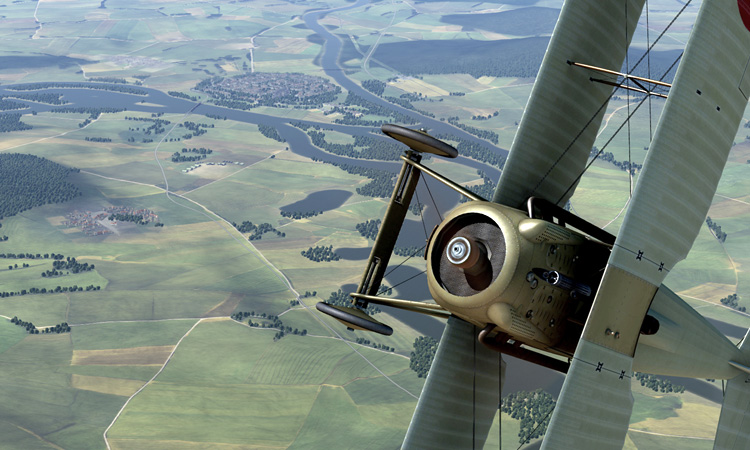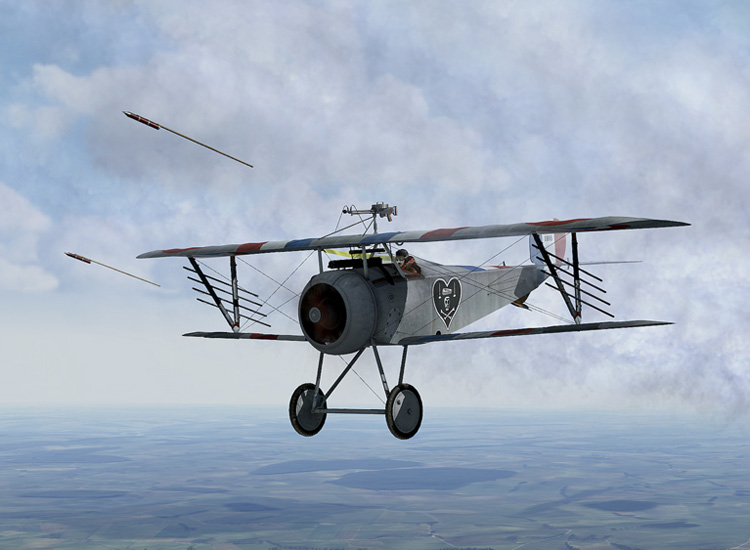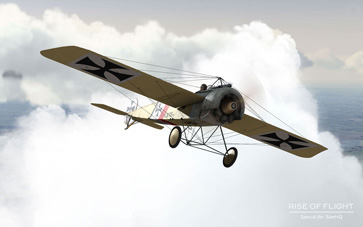Part 3 – The Flight Simulation Endeavor
by Jonas “Avimimus” Weselake-George

It has been three years since virtual pilots were first able to take to the Sky’s in Rise of Flight. From a slightly troubled release, Rise of Flight has grown into what is universally recognized as one of the greatest flight simulators ever created — repeatedly setting new precedents for simulation design and being irresistible to players.
To celebrate this occasion Jason Williams of 777 Studios and Albert Zhiltsov took some time to give us a fascinating interview. I think I speak for everyone in the community when I express our appreciation for the depth, eloquence and quality of answers — as well as for the time set aside to share knowledge with us. Both personally, and on behalf of SimHQ, I’d like to express my pleasure at being able to help bring this out.
This is the third part of the interview series and will be more focused on the developer’s motivations, the challenges and triumphs in the industry, the relationship with the community and the role of flight simulators in the modern world.
In Part 1 of the interview we discussed the future features and expansions which are expected over the next year. In Part 2 of our interview we discussed the simulation at greater depth, describing some features and how they work in the sim.
For some information on Rise of Flight, take a look at our earlier retrospective showing some of the updates released over the last year. You can also read the review from three years ago when it was first released.

Jonas: Rise of Flight had an interesting, and sometimes difficult birth. Over the past three years it has seen very impressive growth due to the dedication of those involved. How did you get involved in this project? What motivated you?
Albert: I am the author of the project, i.e. I’m the guy who said “let’s do it.” Since the idea always entails responsibility for its realization, I then got the role as the producer of the project.
Of the many reasons that [I] had the desire to create this project, I will highlight three. First — my curiosity. The attempt to find answers to the questions which everyone asks who reads the fascinating literature that describes the events of the past. Everyone asks himself the question “How was it?” or “Why was it so?” the second reason is the passion computer games and technology [that I have had] since my childhood, and the desire to create a link between the virtual world and the real world — so to connect the hobby and the work seemed to me the very interesting idea. The third reason — a passion for flight simulators.
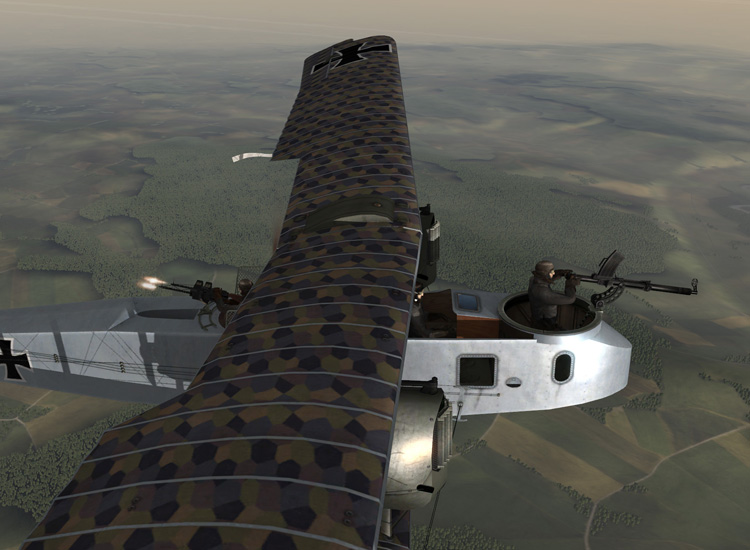
Jonas: On a serious note. We are nearing the 100th anniversary of the “Great War”, the “war to end all wars” which took approximately 15,000,000 lives. Flight simulators have had an important role in spreading knowledge about the past, especially for younger generations who didn’t grow up around Veterans of these wars.
Do you value this as part of your work? How important are flight simulators for keeping history alive? How do you feel about the fact that this difficult process is reliant on purchases from enthusiasts, rather than government funding?
Many of us grew up with Veterans from both wars. The younger generation doesn’t have this tangible contact with history. What effect do you think decreasing remembrance of this history will have on the simulator market?
Albert: We never specifically sought to get into some kind of date [anniversary]. But of course we hope that this event in 2014 will return the focus of a wider audience to this period, and we’ll be very happy if Rise of Flight will be a “time machine of World War I” for [such] new members.
I think I need to share all that is mixed in a bunch of noisy modern media. Simulations are closer to science than to typical entertainment. They require you to not only free time, but [to participate in] the constant search for information and training. Just as in real life. So, of course, when you create such projects you do not have to rely on big budgets and huge sales like traditional games. But science can be profitable, if you will be persistent and be not afraid to learn. Of course, with the help of investors (or in some cases the state), many questions would be simplified greatly and there would be more opportunities — but the absence of this assistance does not mean a dead end. Always and at all times there will be groups and individuals, which beckon the challenges of not yet discovered lands, the laws of nature or history. Of course, it is difficult to build a successful and profitable business in this way because of the complexity — it is an integral part of any new venture. We were hurt more by the lack of the experience than by the lack of support from others.
Reflecting on the current young generation is even harder to me. In my youth I was a “black and white” and divided everything in two ways — the right and wrong. Now I can already see the many shades that make up society and became less categorical in their judgment. The world is changing rapidly — more rapidly than in any previous period in the history of our civilization. And we need to look for new methods and approaches to interest new generations who [now] live at an incredible pace. I am sure that they are interested — [it is] just that they do not always have time for that or they are not interested in [the] old ways of attracting them. During my parents time everything was measured in hours, and in their parents time everything was measured in days and I was born in the world, where everything was measured in minutes, and today’s youth are sometimes not willing to wait even several seconds. It seems to me that we should not try to change them and certainly it’s not worthwhile to think that they should be forced to become better. We need to search; we need to do more interesting projects. That’s my simple answer.
And I see that gaming (not just simulations) is becoming [an] increasingly popular source of knowledge — including about history. After all, it’s much more fun to play in the story than just to read [about] it in the [form of] dry facts, or even to watch a movie [about it]. And I am sure that the role of games in education will continue to grow. The only question is: how these games should look with more and more demanding expectations from modern life and [the] younger generation.
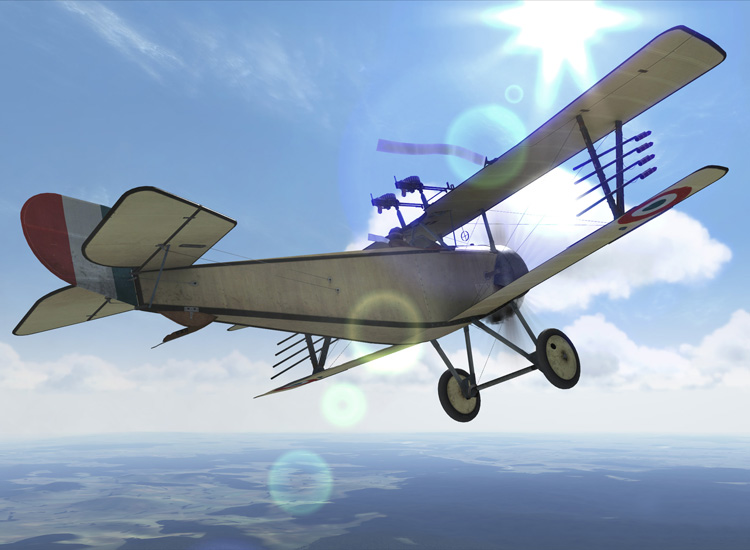
Jonas: A problem faced by modern flight simulation developers is that any improvement in their product then raises the bar for the sequel. Enthusiasts forget how much simpler earlier simulators were, and assume the current state as “normal”. At the same time increasing complexity means that there are more chances for bugs to appear in the software.
Do you ever feel that you are competing against yourself? Do you ever feel that you might find it hard to live up to your past accomplishments?
Albert: Yes, every step up the hill is heavier than the previous one, it’s the law of attraction. But this is a global issue. Speaking specifically only about us — I do not see a problem. We used more than half of our own abilities and capabilities of computer technology. We are only holding back by the size of the team. The boundary of possibilities is determined by game community care — the more users, the more deep and wide may be a similar project. There is no any fear of the future, we avoid the steep slogans and high-profile titles, all of these statues and busts weight a lot and with them it’s hard to be the first near the finish line.
Jonas: Flight simulators can be many times more complicated than first person shooters, with deep game dynamics being much more important than graphics. Flight simulation developers also have to value the intrinsic quality of their products, in addition to what sells in the short term.
With Rise of Flight patches have repeatedly introduced new free features, along with purchasable add-ons. How do you maintain this balanced development? Is it ever a challenge?
Albert: We have read carefully what users write to us. We decided that we would sell the aircraft and understood that the aircraft is part of the game world. The game world should be also developed further to create the appropriate environment for the aircraft. This is, perhaps, the basic balance between free and commercial additions. We offer something interesting, something worth the money, but it is very difficult to say what a “deep flight dive” consists of. Hundreds of different factors influence this effect, but only if the immersion took place — the player will make a purchase. As you know, we use the aggressive advertising rarely and are very proud that most new players come from recommendations of their friends who were delighted by trying this “flight immersion” in our project.
Just do not forget that all these three years, only such business model of Rise of Flight has allowed us to develop the product further. We literally did the next plane and other improvements on the money received from the sale of the previous one. We are very pleased that we managed to invent and create such a system for a hard-core flight sim. We know it is not a perfect system, but this business model has worked to our advantage and allowed Rise of Flight development to continue. We will always look for ways to improve how we do business.
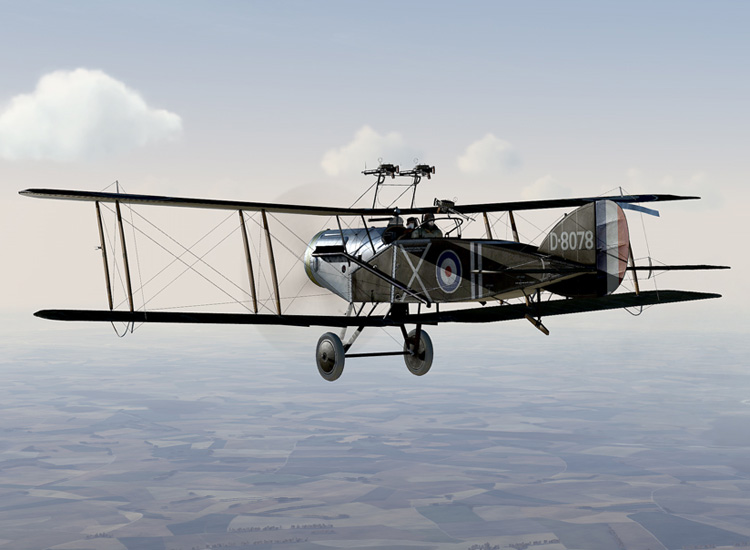
Jonas: In developing Rise of Flight your team has been very responsive to your user base — repeatedly incorporating difficult features, and even delaying some features, in response to their input. This has undoubtedly helped Rise of Flight achieve its glory.
Do you ever feel that it would be easier to develop a product for a mass market audience which isn’t as knowledgeable? How important is community involvement?
Albert: I do not think like that you can simply say that it is easier to do that [in projects in other genres] than to do it [in our project / Rise of Flight]. Any project is full of errors, victories, discussions and hard work. When you work for a narrow and a professional audience as the audience of Rise of Flight, we pay much attention to details. The aircraft must be re-created according to the drawings, the project includes a real sky atlas for 100 years, a ballistic trajectory of each bullet fired is considered and much more than what you see in terms of developing games for the mass market.
But while working on the game for a large audience you have other problems, such as game balance or the exact time for passage of a mission. While working on a historical reconstruction, we think less on such things. It’s no surprise that at a certain historical period some particular plane just dominates the sky and you should possess exceptional abilities to defeat it. We only manage carefully what aircraft will be released that all the participants will have a balanced experience. We look at what aircraft the community wants; fortunately, it was always a choice of several planes.
Of course, we are interested to work for the mass market, there are advantages and disadvantages, but most importantly, there is also a lot of interesting challenges there. We are open to suggestions and we participate in all major game exhibitions in our industry. But so far we only work on the development of Rise of Flight.
I am personally attracted to the idea of telling about history to as large an audience as possible. It is nice to talk with those who are just as good and deeply involved in our theme [WWI flight simulation], it is a thinking audience. But is everyone else who does not have the time or money or [who doesn’t] own a very powerful computer not worthy of our attention? Of course, they are worth it, but we need to make things easier to work with them, they are still not able to master a complex game like Rise of Flight and technical issues. Rise of Flightrequires very different approaches and new gameplay ideas to inspire them and bring them to the study of history.
[The] Community of players is very important for a successful operation. Now it is more important than ever before. That player is deciding now which project [will] exist and develop [further] and who must go to the “second round”. After all, players are [now] buying something from you personally in your online store and they want the developer to communicate with them and get adequate answers. Every developer should be able to be grateful to those who are interested in a product [which] he or she [has] made. And the ability to listen and be heard by users is probably one of the most important competencies now.
It was easier for us, since we have started as players and members of the simulation community. We understood how the sim player felt, about what they thought and dreamed and we did not like how some other developers of such games behaved, so we decided to behave differently.
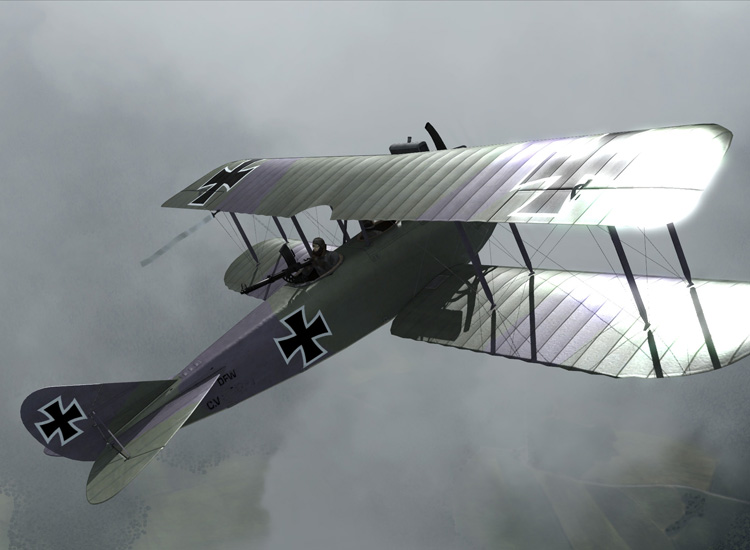
Jonas: A flight sim like Rise of Flight is extremely complicated. In addition to being more difficult to control for bugs and design game dynamics, this also means that the development cycle is longer. At the same time WWI flight simulators were largely ignored for several years until Rise of Flight brought the genre back from the mists of time.
Could you provide a very rough estimate of the number of lines of code in a simulator like Rise of Flight?
Given the years of investment in development. Do you expect much competition from other developers? Would you say it is likely that another developer will re-enter the market if Rise of Flight ceased development or do you think that Rise of Flight will be the definitive product in its niche?
Albert: The first question has caused great excitement in our office, our team guys began to offer different methods of Rise of Flightcode evaluation. Should it be measured in megabytes, in the amount of memory at work, in rows, in characters, argued as to whether shaders count as code. It demonstrates how such a question is not simply to answer. Rise of Flight is now more than 1.5 million lines of code, if we assume that the average line is to 40 characters.
So it required a lot of work and required us to gain knowledge in various fields and in many special and unique methods of work as a team. This is a great challenge and a huge risk to do projects of this magnitude, but it turned out ok. From the first day of release we were thinking about further additions to the project, so everything was prepared for this. We knew what we should do, we knew what we wanted to get in the end, we just did not always know where it is the shortest path to the goal, but it came with more experience.
I am an optimist. I believe that right now — somewhere in the doorway of a university or an office — a young man leaves with a solid idea to make a project better than Rise of Flight. But, as we said earlier — it will be harder for him to do than it was for us, because the speed of life will increase even more and financial crises will put into question all existing business models again and again. James Cameron dove to the bottom of the Mariana Trench, using his own funds. Perhaps this young man will find an opportunity to test his strength; I wish him luck and will be happy to share my experience with him. I am an optimist.
But of course, I do not think anything of such scale like Rise of Flight will appear tomorrow, only in the future — several years. Now the whole world is going through a phase of expansion, rather than deepening the possibilities, it is not the best time for such developments. But to think that Rise of Flight may be the last such project — I do not want. My whole inner being is against such idea.
Jonas: Is there anything else that you’d like to say to the community?
Albert: I’d just like to say on behalf of the entire team THANK YOU to all who have stood by us and supported us with purchases and participation these past three years since release. Some have stood by us even when it was not cool to do so and believed in our common vision. We really appreciate that. It’s been a hard battle, but the war is not won yet. We’ll continue to fight the good fight.
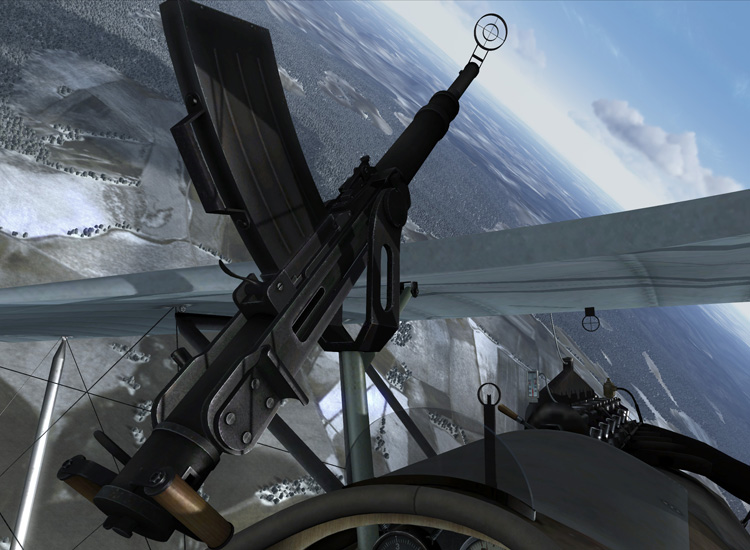

Part 1 of our interview discusses upcoming features and expansions for 2012.
Interviewer’s Note: Russian is a very elegant language and sometimes requires less words to make sentences than is expected by many English speakers. Some adjustment has been made — particularly to tenses when it helped greatly with reading. Comments in square brackets are editorial additions to improve the flow for readers who are not familiar with Russian. We’d also like to remind readers that this section is mainly speculating on possible features — everything is a work-in-progress and can change at any time.
We want your Feedback. Please let us know what you thought of this article here.



